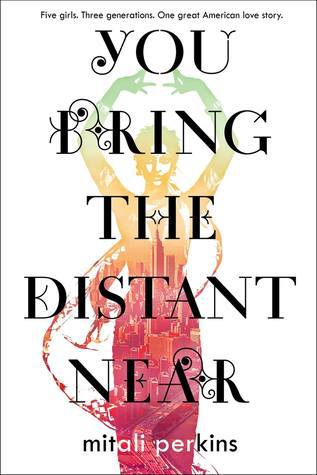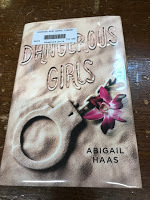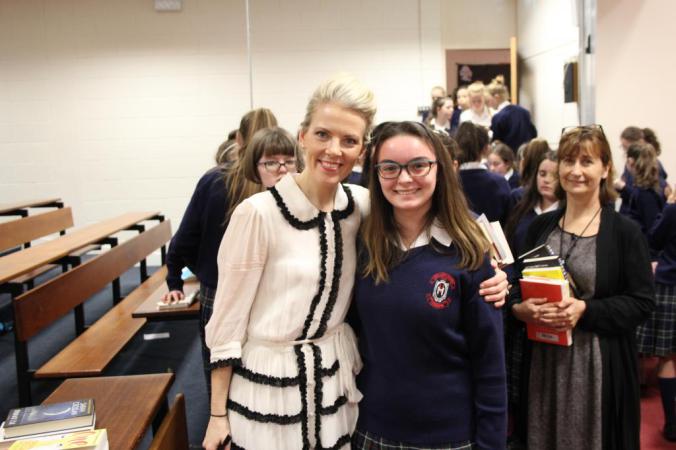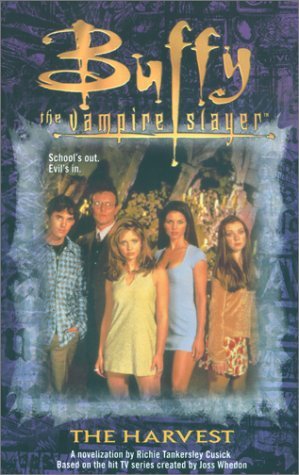I didn’t know what to expect going into this book. I was instantly intrigued by the synopsis, but it went on the back burner of my mind until… I came across it at the local library. You Bring the Distant Near blew me out of the water in the best way possible. A myriad of emotions rippled through me, and I found myself laughing and crying in various parts of the book. Now that’s a good book to me.
 Title: You Bring the Distant Near
Title: You Bring the Distant Near
Author: Mitali Perkins
Publisher: Farrar, Straus and Giroux
Release date: September 12, 2017
Genre: Young adult, contemporary
Length: 320 pages (U.S. hardcover)
Synopsis: (via Goodreads) “Five girls. Three generations. One great American love story. You Bring the Distant Near explores sisterhood, first loves, friendship, and the inheritance of culture–for better or worse. Ranee, worried that her children are losing their Indian culture; Sonia, wrapped up in a forbidden biracial love affair; Tara, seeking the limelight to hide her true self; Shanti, desperately trying to make peace in the family; Anna, fighting to preserve Bengal tigers and her Bengali identity–award-winning author Mitali Perkins weaves together a sweeping story of five women at once intimately relatable and yet entirely new.”


Have you ever read a book you liked so much you didn’t know how to explain why you liked it? That’s me with this book. I definitely did not expect to like it so much, but wow, I was completely blown away. Each of the women in the book were completely relatable, each real and powerful in their own unique situations.
I enjoyed how each girl (and the mother, eventually) paved their own way in their life, and I absolutely loved the contrasting characters, especially with the later generation of girls, Chantel and Anna. Though they’re cousins, they grew up differently, one in America and one mostly in India, even though they are both Americans as well. It’s the opposite of their mothers, Sonia and Tara who are sisters and grew up in America during their teens. Then put their experience against that of Sonia and Tara’s mother, Ranee, who had a very firm grip on how she wanted to live.
One of the only things that really bothered me was Ranee’s reactions to their various living situations and associating goodness and respect with living in a predominately white neighborhood. Maybe that had something to do with raising her girls in Ghana, which apparently had a lot of British natives during the 1960s and 70s. But when her husband moves then to America, Ranee is immediately turned off by the neighborhood. Sonia notes that it’s because of the predominately black neighborhood they live in. I sort of push this aside as Ranee’s prejudice and preconceived notions, but it doesn’t make me any less uncomfortable reading it.
There were a few chapters about 9/11, and how Ranee reacts to it. She goes through a noticeable change that, at first, all the girls embrace, but when Ranee confesses her reasons for this changing, it’s heartbreaking. But I think Ranee feels very liberated and very proud of her decision.
My only complaint about this book is that I wanted it to be longer, lol. I fell so in love with this family, their unity, their womanhood that I didn’t want to leave. I felt as if the characters were saying you don’t have to lose or ignore part of yourself (or your culture) in order to be your true self. We see this particularly with Chantel, who is biracial. That spoke to me particularly as a biracial person.





